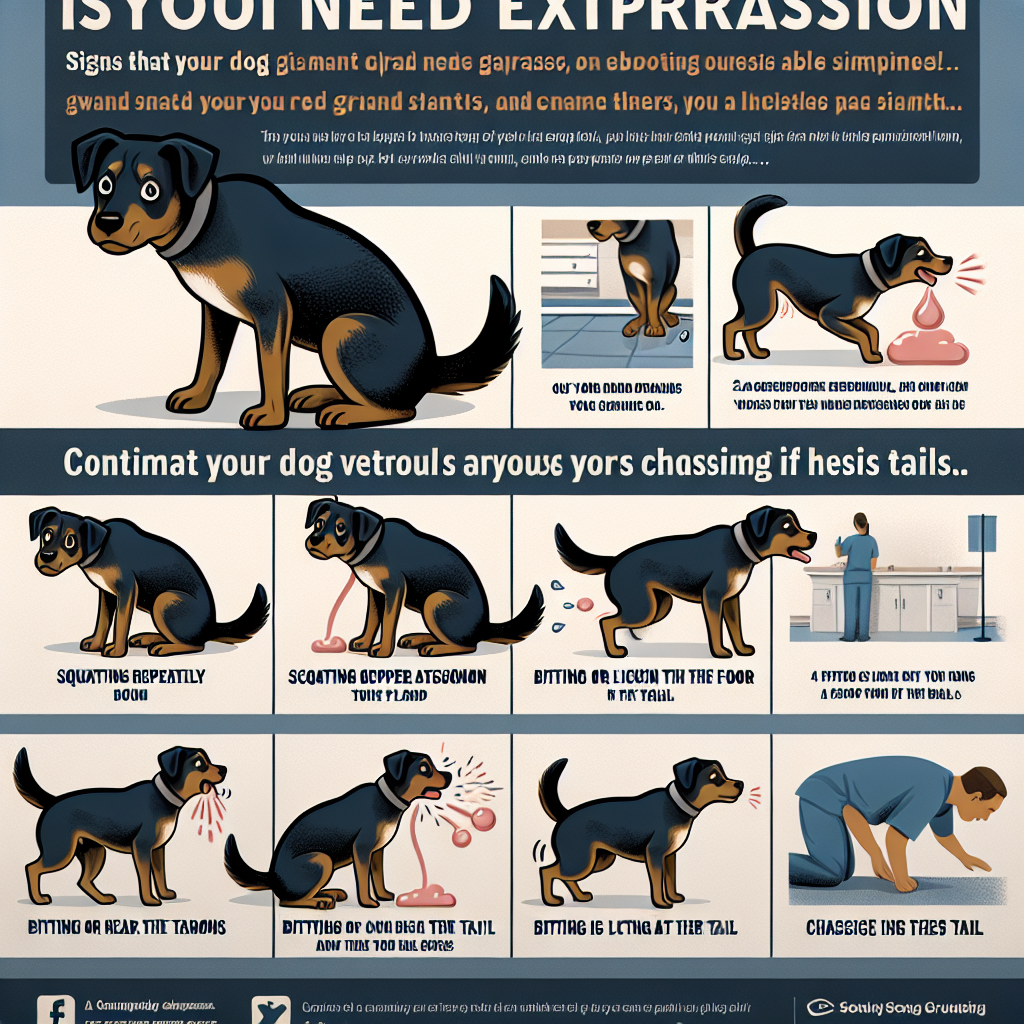===
As a devoted dog owner, ensuring your furry friend’s comfort and health is a top priority. However, many pet parents overlook a critical aspect of their dog’s well-being: gland expression. Recognizing the signs your dog may need gland expression can be a game-changer in keeping them comfortable and healthy. When left unaddressed, impacted anal glands can lead to discomfort, pain, and even infections. This article aims to provide you with essential insights into identifying when your dog may require gland expression and when it’s time to consult a veterinarian.
Recognizing the Symptoms: Is Your Dog in Discomfort?
Identifying the signs that may indicate your dog needs gland expression is crucial for their well-being. One of the most telling symptoms is excessive licking of the rear end. If you notice your pup frequently grooming or biting at the area, it’s a clear indication that something may be amiss. Dogs often engage in this behavior to alleviate discomfort caused by full or impacted anal glands, which can lead to irritation and inflammation.
Another common sign to look out for is scooting. If your dog is dragging their behind across the floor, it may be attempting to relieve discomfort from full anal glands. This behavior can be mistaken for typical playfulness or excitement, but it often signals a deeper issue that requires attention. Additionally, if your dog seems restless or agitated, particularly when sitting, this could also be a sign of discomfort stemming from anal gland issues.
Lastly, keep an eye on your dog’s bowel movements. Straining to defecate or experiencing changes in stool consistency can indicate that the anal glands are not functioning properly. If your dog is experiencing any combination of these symptoms, it’s essential to take them seriously. Ignoring these signs may lead to more severe complications, such as infections or abscesses, which can result in more intensive treatment and discomfort for your pet.
Understanding Gland Expression: When to Seek Veterinary Help
When it comes to maintaining your dog’s health, understanding the purpose of gland expression is paramount. The anal glands serve as scent markers and generally express themselves naturally during bowel movements. However, some dogs may be prone to anal gland issues due to a variety of factors such as breed, diet, or even obesity. Recognizing when to seek veterinary help is key to preventing further complications down the line.
If you observe that your dog exhibits symptoms of discomfort or shows signs such as frequent licking, scooting, or straining to pass stools over an extended period, it’s time to consult your veterinarian. Early intervention can prevent the need for more invasive treatments later. A veterinarian can perform a manual examination to determine if the glands are full, impacted, or infected, allowing them to provide appropriate treatment, which may include expressing the glands or prescribed medications.
Additionally, understanding the breed-specific tendencies regarding gland issues can be advantageous. Certain breeds, such as Bulldogs, Cocker Spaniels, and Chihuahuas, are more susceptible to anal gland problems. If you own one of these breeds, regular check-ups with your vet may be necessary to monitor their gland health proactively. Taking a proactive approach to your dog’s health can lead to a longer, more comfortable life for your companion.
===
Recognizing the signs your dog may need gland expression is an essential skill for every responsible pet owner. By monitoring your dog’s behavior and acting on the symptoms of discomfort, you can alleviate potential health issues before they escalate. Always consult your veterinarian if you have any concerns, as professional guidance is invaluable for your pet’s well-being. Remember, your dog’s comfort relies on your vigilance, so stay informed and proactive. If you suspect your furry friend is in discomfort, don’t hesitate—reach out to your veterinarian today for a thorough examination and ensure your dog’s health remains a top priority.
Measuring Your Dog’s Height: A Comprehensive GuideUnderstanding How Dogs Become Infested with FleasUnderstanding the Lifespan of Pug Dogs: What to ExpectRelevant LinkRelevant LinkRelevant Link
